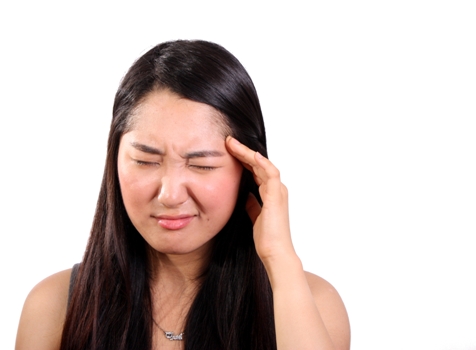
Definition Of Dizziness
The word ‘dizziness’ is used interchangeably to describe two feelings, i.e. lightheadedness and vertigo. Lightheadedness refers to the sensation that you are about to faint. You do not feel your surroundings are moving when you feel dizzy. It often goes away when you lie down. Sometimes lightheadedness can cause nausea and vomiting. It is usually not a serious condition and is caused by low blood pressure, flu, hyperventilation, etc. When you experience vertigo, you feel you or your surroundings are moving although there is no actual movement. You may feel like you are tilting to one side or falling. Vertigo occurs when conflicting signals reach your brain from balance-sensing systems of the body.

Dizziness Caused By Allergies
Allergies can cause dizziness when the inner ear imbalance is disturbed due to sinus congestion and blockage of the Eustachian tube in the ear. The body releases chemicals called histamines to combat allergens that may be present in pet dander, pollen, and dust. Histamines produce allergic symptoms including congestion of the sinuses, sneezing, coughing, and watery eyes. The Eustachian tube is a structure in the inner ear that connects the middle ear to the back of the throat. Allergic symptoms cause blockage of the Eustachian tube and the clogging can result in symptoms of dizziness in people suffering from allergies. Allergies can cause lightheadedness and a feeling of weakness that usually resolves temporarily when you lie down. Fluid buildup in the middle ear causes vertigo. Food allergies cause dizziness and lightheadedness.
- Important notification about information and brand names used in this slideshow!
- Photo courtesy of Jim Lukach by Flickr : www.flickr.com/photos/65047661@N00/4603767590/
- www.webmd.com/brain/tc/dizziness-lightheadedness-and-vertigo-topic-overview
- http://www.healthline.com/health/allergies/diziness

Flu/Cold/Fever Can Cause Dizziness
Flu, colds, and fever cause dizziness characterized by lightheadedness and unsteadiness. Dehydration sets in when a person has flu, cold, or fever resulting in dizziness. Your doctor instructs you to consume fluids regularly when you are suffering from fever and cold to ward off dehydration. It is difficult to tolerate fluids due to nausea and vomiting leading to fluid loss. Dry lips and mouth, decreased urine output, increased heart rate, decreased blood pressure are signs of dehydration. Flu, cold, and fever may be accompanied by diarrhea or vomiting increasing chances of dehydration. Colds causing sinus congestion and blockage disrupt the equilibrium causing dizziness. During a respiratory tract infection, bacteria lodge on to the mucus lining the sinus cavities, sometimes spread to the ear tube, and cause ear infection.
- Important notification about information and brand names used in this slideshow!
- Photo courtesy of Mike Gifford by Flickr : www.flickr.com/photos/mgifford/3308400886/
- www.webmd.com/brain/tc/dizziness-lightheadedness-and-vertigo-topic-overview
- http://www.livestrong.com/article/528653-how-to-treat-a-flu-accompanied-by-dizziness/

Vomiting, Diarrhea, And Nausea Can Cause Dizziness
Dizziness occurs due to a variety of reasons including fever, flu, colds, infection, etc. It can also occur due to vomiting, diarrhea, and nausea caused by viral gastroenteritis that results in inflammation of the stomach lining, small intestine, and large intestine. Treatment is effective unless the person becomes dehydrated. Headache, fever, chills, and abdominal pain usually occur with viral gastroenteritis. Dehydration is a serious complication of viral gastroenteritis when fluids lost due to vomiting and diarrhea are not replaced by adequate fluid intake. Dehydration causes imbalance of salts and electrolytes. Dehydration is characterized by excessive thirst, infrequent urination, dark-colored urine, itchy skin, lethargy, and dizziness. Older people, infants, and young children with weaker immune systems are at greatest risk of becoming dehydrated.
- Important notification about information and brand names used in this slideshow!
- Photo courtesy of NMSC by Picasa : picasaweb.google.com/lh/view?q=nausea&uname=109008901828086469253&psc=G&filter=1#5838515846288634722
- www.webmd.com/brain/tc/dizziness-lightheadedness-and-vertigo-topic-overview
- http://digestive.niddk.nih.gov/ddiseases/pubs/viralgastroenteritis/
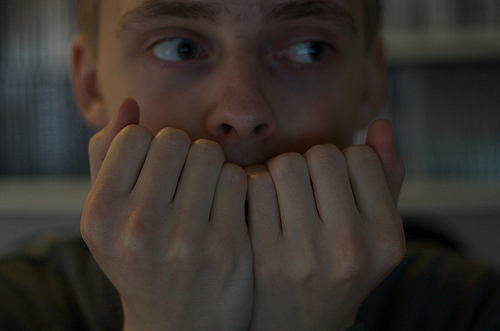
Anxiety And Stress Can Cause Dizziness
Dizziness or lightheadedness are among the common symptoms of stress and anxiety in some people. This is particularly noticed in people suffering from anxiety attacks. Anxiety and stress-induced dizziness may be due to several reasons. The most common cause is hyperventilation that can occur during an anxiety or panic attack. Quick breathing or poor breathing can lead to dizziness. During panic attacks, the rush of adrenaline can cause lightheadedness. The symptoms improve quickly and it is not a dangerous symptom. In a study published in the Archives of Otolaryngology-Head and Neck Surgery, it was found that chronic dizziness could result due to anxiety disorders. The researchers found that of 345 patients all but six patients were diagnosed as having psychiatric or neurologic disorders including primary or secondary anxiety. Anxiety disorders were linked to 60 percent of chronic dizziness and central nervous system conditions in patients.
- Important notification about information and brand names used in this slideshow!
- Photo courtesy of Peter Gerdes by Flickr : www.flickr.com/photos/petergerdes/4470069648/
- www.webmd.com/brain/tc/dizziness-lightheadedness-and-vertigo-topic-overview
- http://psychcentral.com/news/2007/02/20/anxiety-can-cause-chronic-dizziness/636.html
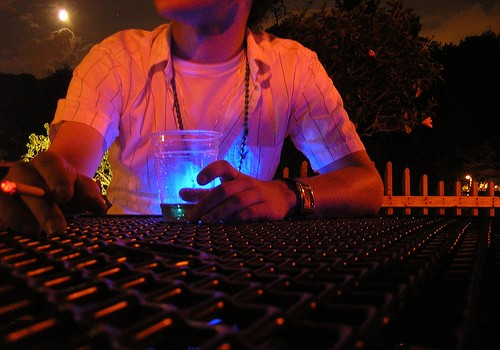
Drug, Alcohol, And Smoking Can Cause Dizziness
The use of tobacco, illegal drugs, and alcohol can cause dizziness. These problems may be due to overmedication or alcohol-drug interactions. This is usually seen in older adults who take several medications to manage multiple co-morbidities. Alcohol abuse can cause dizziness. Alcohol-drug interaction of alcohol and antibiotic streptomycin is known to damage the inner ear causing imbalance leading to dizziness. Smoking related dizziness is due to nicotine present in tobacco. Nicotine affects the central nervous system and is absorbed by the blood taking it directly to the brain, where there is a decrease in oxygen level causing dizziness. It may cause oxygen in blood to be replaced by carbon monoxide causing dizziness and lightheadedness. Nicotine withdrawal can also trigger dizziness as well.
- Important notification about information and brand names used in this slideshow!
- Photo courtesy of Sarah Sphar by Flickr : www.flickr.com/photos/midwestgrrl/208119273/
- www.webmd.com/brain/tc/dizziness-lightheadedness-and-vertigo-topic-overview?page=2
- http://www.healthlinkbc.ca/kb/content/symptom/dizzi.html
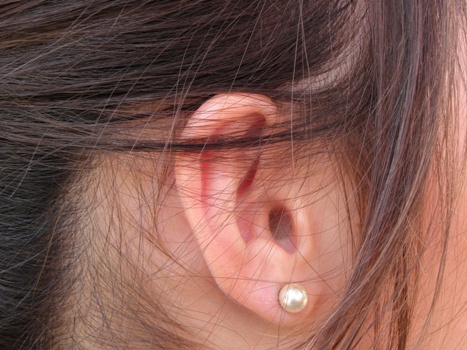
Inner Ear Problems
Dizziness can be caused due to sudden change in the structures of the inner ear, which sense movement and changes in position of the head. Moving about, sitting up, and other movements can worsen symptoms of dizziness. Vertigo can also be caused by these factors. Inflammation in the inner ear called acute vestibular neuritis causes sudden onset of intense constant vertigo that can persist for many days. It could be accompanied by nausea, vomiting, and problems with balance. When the symptoms present together with sudden hearing loss, it is called labyrinthitis. Dizziness can occur due to trouble with balance and dehydration caused by vomiting. Meniere’s disease is another inner ear disorder that can cause dizziness and a ringing sound in the ears called tinnitus. Dizziness may occur suddenly after an episode of tinnitus.
- Important notification about information and brand names used in this slideshow!
- Photo courtesy of 13dede by sxc.hu : www.sxc.hu/photo/1222929
- www.webmd.com/brain/tc/dizziness-lightheadedness-and-vertigo-topic-overview?page=2
- http://www.mayoclinic.com/health/dizziness/DS00435/DSECTION=causes
- http://www.nlm.nih.gov/medlineplus/menieresdisease.html

Low Blood Sugar Level And Diabetes Can Cause Dizziness
In people suffering from diabetes, the body is unable to produce the hormone insulin required to regulate glucose levels in the bloodstream. Diabetes causes other morbidities in the body. High glucose levels or hyperglycemia produce chemical imbalance that can result in dizziness and unconsciousness. Low glucose levels or hypoglycemia result in fatigue, weakness, sweating, and hunger. In this case, the person feels dizzy due to lack of energy for maintaining normal processes. Therefore, hyperglycemia and hypoglycemia can cause dizziness as the metabolic functions are affected. Hyperglycemic functions symptoms include dry mouth, excessive thirst, blurred vision, fatigue, and dizziness. In extreme cases, the person may suffer from shortness of breath, lose consciousness, and lapse into a coma. A low glycemic diet, regular medications, and exercise help control the blood sugar level fluctuations.
- Important notification about information and brand names used in this slideshow!
- Photo courtesy of Uwe Hermann by Flickr : www.flickr.com/photos/uwehermann/132244825/
- www.nhs.uk/conditions/dizziness/Pages/Introduction.aspx
- http://www.diabetesforum.com/2009/06/the-reason-why-diabetics-suffer-bluriness-and-dizziness
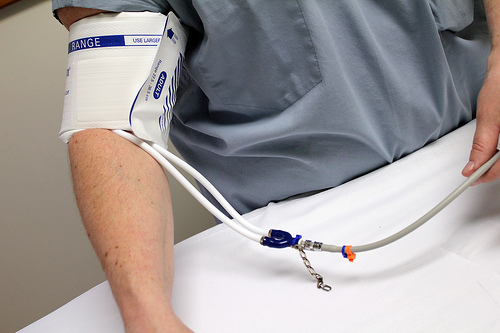
Low Blood Pressure (Hypotension) Causes Dizziness
Hypotension is low blood pressure. With each heartbeat, blood pushes against the walls of the arteries called blood pressure. Generally, low blood pressure is not a serious condition but sometimes it can make the individual feel lethargic and dizzy because oxygenated blood is unable to reach the organs in the body. In this situation, it is advisable to seek medical attention. Systolic pressure is the measurement of blood pumping through the arteries and diastolic pressure is the measurement of period of rest. It is normally around 120/80 mm Hg. Chronic low blood pressure is orthostatic hypotension. Age, temperature, time of the day, and time since the last meal are all factors that may cause hypotension and dizziness. Pregnancy, weakness, infections of the bloodstream, diabetes, and thyroid disease may also cause low blood pressure and dizziness. Medications that may induce dizziness due to low blood pressure are diuretics, tricyclic antidepressants, beta-blockers, and nitroglycerin.
- Important notification about information and brand names used in this slideshow!
- Photo courtesy of Quinn Dobrombrowski by Flickr : www.flickr.com/photos/quinnanya/5645559731/
- www.nhs.uk/conditions/dizziness/Pages/Introduction.aspx
- http://ask.healthline.com/health/hypotension
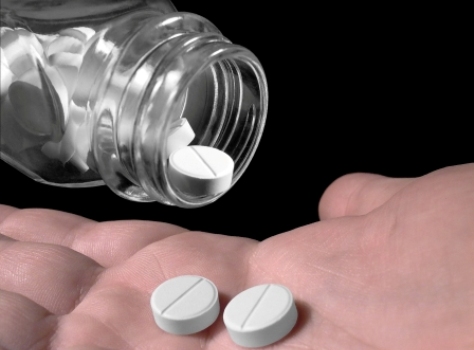
Treatment Options For Dizziness
Dizziness is a symptom of an underlying disease that requires medical treatment. Dizziness or lightheadedness caused by a heart problem may warrant hospital admission for testing procedures. Dizziness due to a stomach infection may require intravenous fluids and appropriate medications to stop vomiting and diarrhea. If the dizziness is caused due to acoustic neuroma, or Meniere’s disease, the patient is referred to an ear, nose, and throat specialist (otolaryngologist). Some patients with symptoms of dizziness may require oxygen to ensure the organs are not deprived of nutrients. Vertigo caused by problems to the inner ear is treated successfully with maneuvers to shift the position of the crystals and debris in the semicircular canals of the ear. Oral steroids may be necessary to decrease the inflammation. Meclizine (Antivert) may relieve the symptoms of dizziness. Valium may be given to patients with intractable symptoms and vomiting.




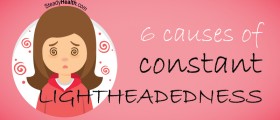








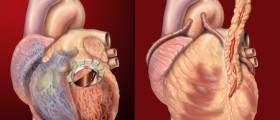




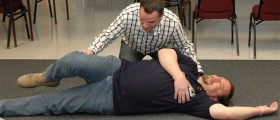


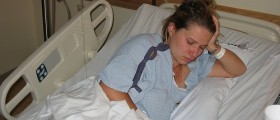





Your thoughts on this
Loading...